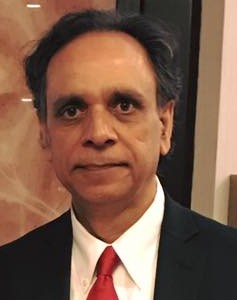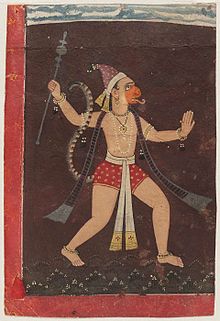By Upendra Mishra
The world has changed a lot since the dawn of human race about 60,000 years ago. Now, it is changing even at a faster pace than ever before in terms of technology, communications, travel, health, medicine, food, housing, culture, entertainment and even clothing—you name it.
The predictions are that more speedy changes are in the store during the next 100 years or so. The one thing, however, has not changed and probably will not is the basic human nature and our instinct to survive, excel, succeed, avoid pain and seek pleasure and happiness in life.

This is where mythological stories from the past become relevant because they convey powerful wisdom about human mind and nature in primitive but profound way. Their grasp of human nature has proven right again and again through thousands of years of evolution of our mind. Here is one from the Hindu epic Ramayana by Valmiki (written approximately between 200 BCE and 500 BCE):
When the monkey army led by Angada found that Lord Rama’s wife Sita had been kidnapped to the island nation of Lanka by demon king Ravana, the troops marched to the shore of the giant ocean. The problem now was who was going to cross the gigantic sea. Many negative thoughts came to the minds of soldiers filled with hopelessness, fear and despair. Angada then told them: “We must not give in to fear. Doubt and fear will only weaken us.”
The next question was: Who and how to cross the gigantic sea? When everyone gave up and fear again gripped them all, the oldest and wisest among all of them, Jambavan called on Hanuman and reminded him about his inner strength.
Jambavan said to Hanuman: “LOOK TO YOUR INNER STRENGTH, YOUR OWN INFINITE POWER. Rise up and leap over the ocean, O Hanuman !”
Hanuman looked within, and cried out loud: “Back, back to the Self!” And we all know what happened after that.
Despite all the obstacles and watery demonesses who tried to swallow him, Hanuman crossed the ocean in one leap to Lanka, found Sita in Ashok Vatika, partially burned the island when his tail was set on fire by Ravana’s order, came back to Rama and told him about Sita. Later, Hanuman led Rama, his brother Lakshmana and the entire army to Lanka, flew to Himalayas during the battle to bring herb Sanjivani to save Lakshmana’s life and eventually helped Rama bring Sita back home.
In Indian mythology, Hanuman is an interesting character. Of thousands of Hindu gods, Hanuman is the only one who succeeded at everything he set his mind on. All other gods–even the powerful ones like Shiva, Vishnu and Bramha–had failed on some occasions, but not Hanuman. There was nothing impossible for him.

Why? Hanuman had no ego and was unaware of his strength. In fact, he had to be reminded about his strength (a good example of ego-less person.) Also, everything he did was for a selfless cause. The Hanuman story goes like this:
Hanuman was the child of a nymph and the wind god. As a child, he once mistook sun for a fruit and flew up to grab it. Also, he was a mischievous child and often misbehaved with sages, who in turn, cursed Hanuman that he will forget his magic powers such as flying or becoming infinitely large until he was reminded of his powers by someone.
In order to do anything great, we must look inward, focus on our own internal strength and not get distracted by outside glitter. Everything is within us. It is also important to have good mentors and friends in life who not only point to our weaknesses but also to our strengths so that we can not only survive, but also excel, succeed, avoid pain and seek pleasure and happiness in life.
The Hanuman story also tells us that everything that is important—even the infinite strength—is within us. All we need to do is to tap it within us without any ego But the power and strength come with a far greater responsibility.
I remember an interesting episode in one of the TV serials on either Karna or Mahabharata, where the concept of power was beautifully explained by Krishna. Here is a rough translation:
Strength (ability or capacity to be adequate) is more important than Power.
Bravery (courage of conviction) is more important than Strength.
Muscle supremacy is strengthened by Power.
Mind is strengthened by the Ability (competency), and
Soul is strengthened by Bravery.
Both power and ability compete with others.
Bravery competes with none.
Brave (a person with the courage of conviction) competes only with himself/herself. Brave never makes any effort to prove his/her superiority over others. All he/she does is tries to make himself/herself better each time.
Probably, this bravery or the courage of our conviction is the eternal source of happiness.
(Mr. Mishra is managing partner of the Waltham, MA-based integrated inbound marketing and PR firm The Mishra Group. He writes about his three passions: marketing, scriptures and gardening.)















